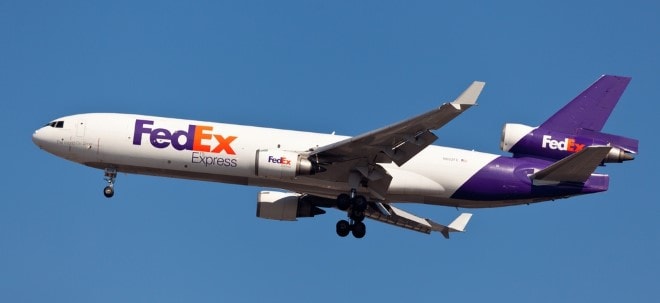Overture Maps Launches GERS, a Global Standard for Interoperable Geospatial IDs, to Drive Data Interoperability
Unique IDs make it easier and cheaper to attach data to geospatial entities, such as buildings, streets, places, etc.
SAN FRANCISCO, June 25, 2025 /PRNewswire/ -- The Overture Maps Foundation, a collaborative effort to build interoperable open map data, today announced general availability of its groundbreaking Global Entity Reference System (GERS). GERS provides a unique ID for every geospatial entity, making it easier to build richer mapping solutions across industries such as automotive, local search, urban planning, ride-sharing, logistics, and more.
Mapping applications and spatial analysis have benefited from an explosion of new data types, but that comes at a cost. Combining data from various sources requires significant time and money to ensure that the data is correctly associated with the right entities in the map. That cost to evaluate and conflate data can exceed the cost of licensing the data, which ultimately will discourage its use.
The GERS IDs enable organizations to more easily join datasets, share information, and onboard new data using open and accessible identifiers—while avoiding the high costs and complexity of reconciling data from different sources.
GERS IDs are a defining characteristic of Overture's open map datasets. Each "entity" in the base maps carries a unique ID, including 2.6 billion buildings, 64 million places, nearly 447 million addresses, and 321 million road segments. These datasets form the foundational layers for anyone building mapping applications and are governed by open source data licenses, allowing free use in applications and analyses. By incorporating GERS IDs into any data that needs to be associated with those base layers, users can easily combine relevant data to build richer applications.
"When we started Overture almost three years ago, we knew that to remake the geospatial industry, we had to solve the problems of adding rich data to the map. GERS does this and is the most impactful innovation of the Overture Maps Foundation so far," said Executive Director Marc Prioleau. "It will drive innovation that impacts billions of consumers as well as companies, governments, and organizations globally. We fully expect it to become the standard around which the geospatial industry aligns."
Eliminating the Hidden Tax of Data Integration
GERS solves two major problems. First, because spatial data is collected and described differently by various sources, it often costs more to onboard and integrate that data into mapping solutions—and to make sure it works with other data—than to license it in the first place. Many data teams lack the expertise or resources to handle complex geospatial data management. As such, organizations may avoid incorporating new data to mapping solutions, limiting the richness and utility of their applications.
"Data conflation is a hidden tax on the data ecosystem. It affects everyone working with data from multiple sources. GERS can end that tax," said Microsoft Vice President, Jeffrey Hightower. "Without GERS IDs, organizations spend weeks getting data into their systems. With GERS, new data can be added in minutes to geospatial entities such as buildings, roads, places, and addresses, making it far easier to build rich applications."
By associating data—such as population or traffic—with GERS IDs for entities such as geographic boundaries or transportation segments—companies can make data connections with simple column joins rather than complex data conflations.
"GERS will accelerate innovation by reducing the time and resources needed to get data into maps, as well as enable organizations to add rich data more cost-efficiently for improved, comprehensive analysis," said Deane Kensok, ArcGIS Content CTO of Esri, the world-leading provider of geographic information system (GIS) software. "This will ultimately allow for more compelling map offerings that solve more problems."
Open, Global, Entity-based – and Built to Enable
GERS is unique in the mapping industry because it is:
- Open — Other ID systems exist in mapping today, but many are controlled by a single company. Overture data and GERS IDs are open, which means anyone can use it without restrictive licensing. Data can be matched to the open base layers via GERS without risk of vendor lock-in.
- Global — Some ID systems today are specific to a country or region, making them complex for applications that cross borders. GERS is global and works the same way worldwide.
- Entity-based — GERS IDs refer to entities like buildings, addresses, road segments, or places. This allows data to be associated with greater specificity than IDs based on latitude and longitude.
- Enabling — The GERS framework enables application developers to track changes to data tied to unique IDs, quickly look up and locate entities through a central registry, and link internal data sources to Overture map entities using bridge files—reducing reliance on engineering resources.
"We see GERS as a major milestone in the evolution of interconnected data as it greatly extends the ecosystem of trusted, connected data available to organizations. Now, teams will be more productive, spending less time onboarding data and more time using it to drive faster, more informed decision-making," said Dan Adams, EVP and GM of Data Enrichment at Precisely, which is a contributing member of Overture and has used its pioneering Data Link partner program for linking GERS to its location, business and consumer data to accelerate innovation and AI outcomes for leading enterprises.
For more information on GERS, please visit overturemaps.org/gers.
About Overture Maps Foundation
Overture Maps Foundation provides free and open map data—as well as global standards to ensure interoperability, ease-of-use, and accuracy—to power current and next-generation map products and accelerate industry-wide innovation. Founded in 2022 by Amazon Web Services (AWS), Meta, Microsoft, and TomTom, Overture now includes nearly 40 contributing companies spanning a wide swath of industries, public sector stakeholders, and mapping and geospatial communities. Overture serves as a trusted and foundational layer for the global geospatial ecosystem by providing the world's largest collection of enterprise-grade open map data and the shared infrastructure and standards to ensure that the data remains accurate, accessible, and updated as the physical world changes. The collaborative work of Overture enables organizations to focus on developing innovative map applications with greater efficiency.
Media Contact
Nora Anwar
![]() View original content to download multimedia:https://www.prnewswire.com/news-releases/overture-maps-launches-gers-a-global-standard-for-interoperable-geospatial-ids-to-drive-data-interoperability-302490485.html
View original content to download multimedia:https://www.prnewswire.com/news-releases/overture-maps-launches-gers-a-global-standard-for-interoperable-geospatial-ids-to-drive-data-interoperability-302490485.html
SOURCE Overture Maps Foundation


